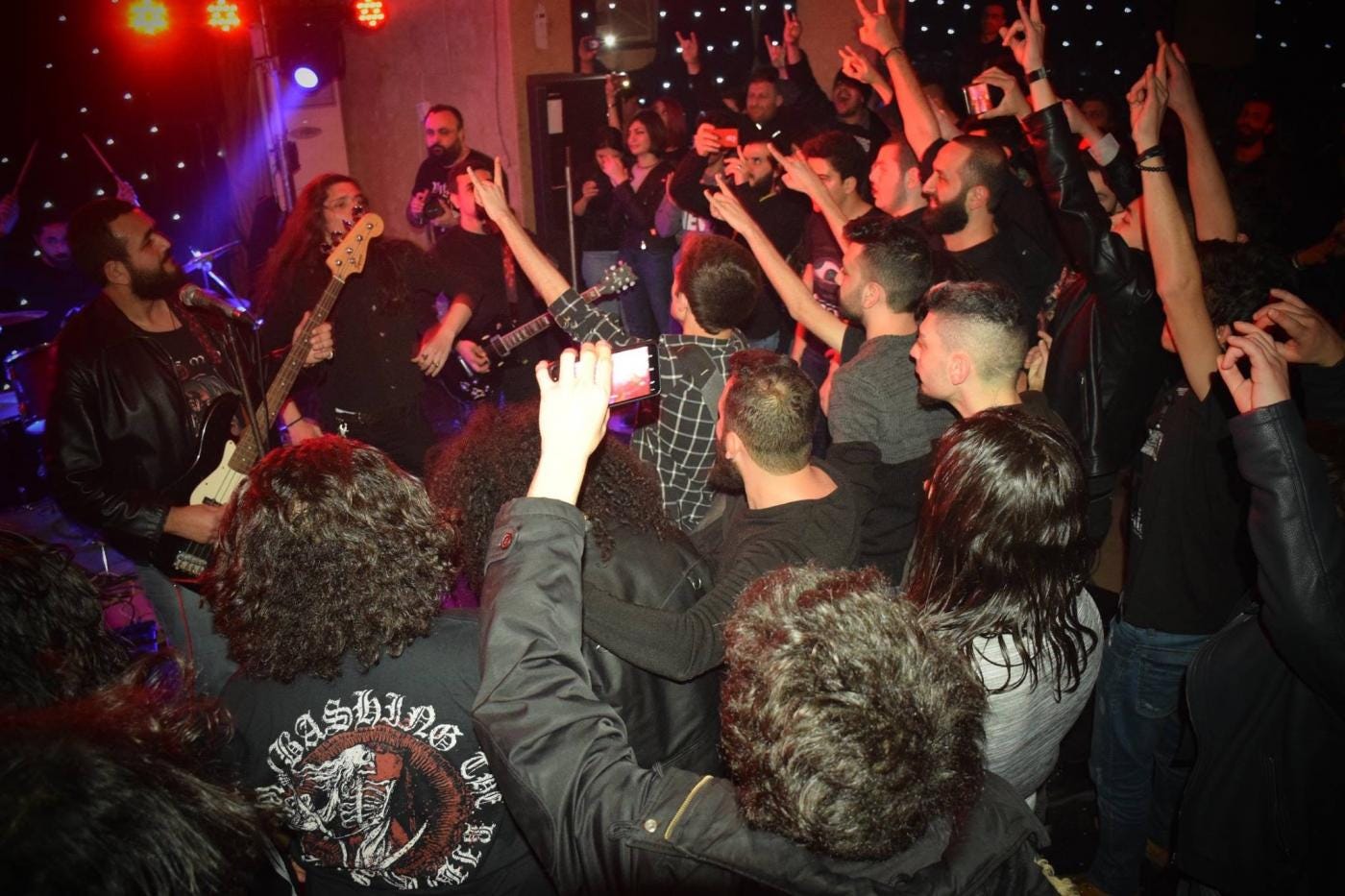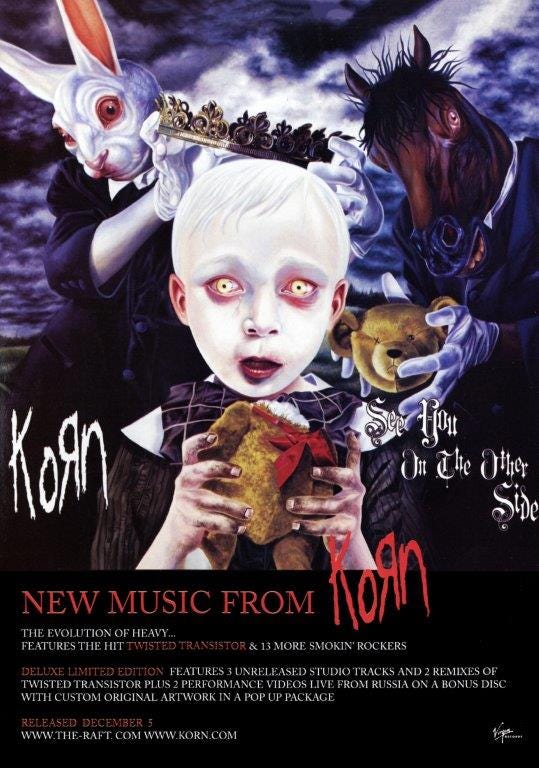The Metal Counterculture of the Middle East
We are at our freest in this community, where we are not constantly being judged and chased.
Walking down the Mansoor district in Baghdad, where I grew up, it wasn’t hard to notice the plethora of posters and CDs picturing Megadeth, Metallica, and other well-known metal bands being sold. Teenagers and adults alike would flock from neighboring districts for a taste of metal; even though the genre was generally associated with anger, satanism, and alcohol/drug use, the unholy trinity that the mainstream cultural and religious institutions in the region were staunchly against. The consequence of being overheard by the wrong person could be dire. All it would take was a small fatwa or militia doing what they do best, and someone could easily end up kidnapped and killed for the sin of listening to music the regime deemed sacrilegious.
I was one of the many teenagers who was drawn into the alluring counterculture of metal music. It offered a much-needed distraction from the day-to-day suffering we were all privy to; witnessing dead bodies being thrown in the streets not far from my high school, baking in the extreme heat during the summers with little to no reliable electricity, and living in a failed state. There were days during which I felt I had no excellent reason to live, no purpose. This is why I and many others were drawn to this type of music. It spoke to the reality of the situation many of us were surviving. It was the peak of the civil war, and neighbors were turning against one another. The teenagers who grew up in Baghdad during this time came away with deep scars, both physical and mental. I think many of us felt a kinship with the anger and veracity that metal music embodies.
Metal music both helped me escape and also helped me to experience the reality of my situation. I couldn’t relate to happy songs because there wasn’t much happiness going on outside of my house and friendship circles. The depression wasn’t in my head; rather, it was outside of it. Heavy metal music was an outlet for my feelings in an environment where I felt stuck and silenced. Heavy metal music screamed the way that I wished I could.
What formed around this music was a beautiful form of resistance– an underground counter-culture. As abstract as it may have been, we found community in the hidden and not-so-hidden corners of the internet. In secret listening sessions in a friend's basements. We were creating an intellectual movement of the sort that was not just interested in the lyrics of death and suicide but in how to avoid those things and ultimately live a better life. Given the inner anger we felt inside coupled with feelings of complete unworthiness and confusion, which band do you imagine we connected with more? Megadeth or The Backstreet Boys? In the lyrics of songs like Holy War, we heard our experiences being mirrored back to us.
Brother will kill brother
Spilling blood across the land
Killing for religion
Something I don't understand
Fools like me, who cross the sea
And come to foreign lands
Ask the sheep, for their beliefs
Do you kill on God's command?
A country that's divided
Surely will not stand
My past erased, no more disgrace
No foolish naive stand
The end is near, it's crystal clear
Part of the master plan
Don't look now to Israel
It might be your homelands
Holy wars
Despite the obvious harms we saw all around us that were born from religious fundamentalism, rather than rejecting it, mainstream culture became dominated by this dogmatic way of thinking. This remains to be one of the greatest mysteries of the human condition. Why are we so easily drawn into mainstream dogma, with the evidence of its failures on full display before our very eyes? Regardless of the day-to-day displays of these failures, many people, if not most, decided to take the defeatist stance and accept things as they were. To me, Al Qaeda and other extremists only offered us two choices: surrender or die fighting. There is no middle ground or compromise to be found amongst religious zealots. The choice to fight, even in small ways by listening to music the regime disapproved of, was not an easy one. Despite the high costs if discovered, this music made life seem more worth living.
Metal music offered not just dismissal but a loud rejection of the values of mainstream culture and religious dogma. It was not only fun and liberating but enlightening.
Within this community, it wasn’t only songs that were exchanged, but books and magazines; through this I was introduced to many works of enlightenment thinkers from Voltaire to Rousseau to even the founding fathers of the United States. Once while I was buying the album Death Magnetic by Metallica, the owner of the store decided to give me Common Sense by Thomas Paine. Being a part of this community was akin to giving an implicit nod to a friend that said, “You’re safe to think freely here.” We shared the same outspokenness about the darkness all of us were living through, and that strong bond was my savior in those times. In this way, intellectualism became a core tenet of the counterculture. It’s also where I met my first girlfriend, who was an avid follower of Korn and Slipknot.
While it may seem trivial to those living in a more open and free society, this community gave and continues to give people in the Middle East an outlet for their frustrations and a small window into enlightenment ideas. We are at our freest in this community, where we are not constantly being judged and chased. While it was definitely not a “safe space” due to the lack of safety in Iraq, it was a safer space. A space where ideas and differences were not just tolerated but encouraged. In a society that forced people to conform, not just out of fear of being socially ostracized but out of fear of being killed, heavy metal music offered an existential escape. An escape that we chased, despite the potentially grave consequences.



